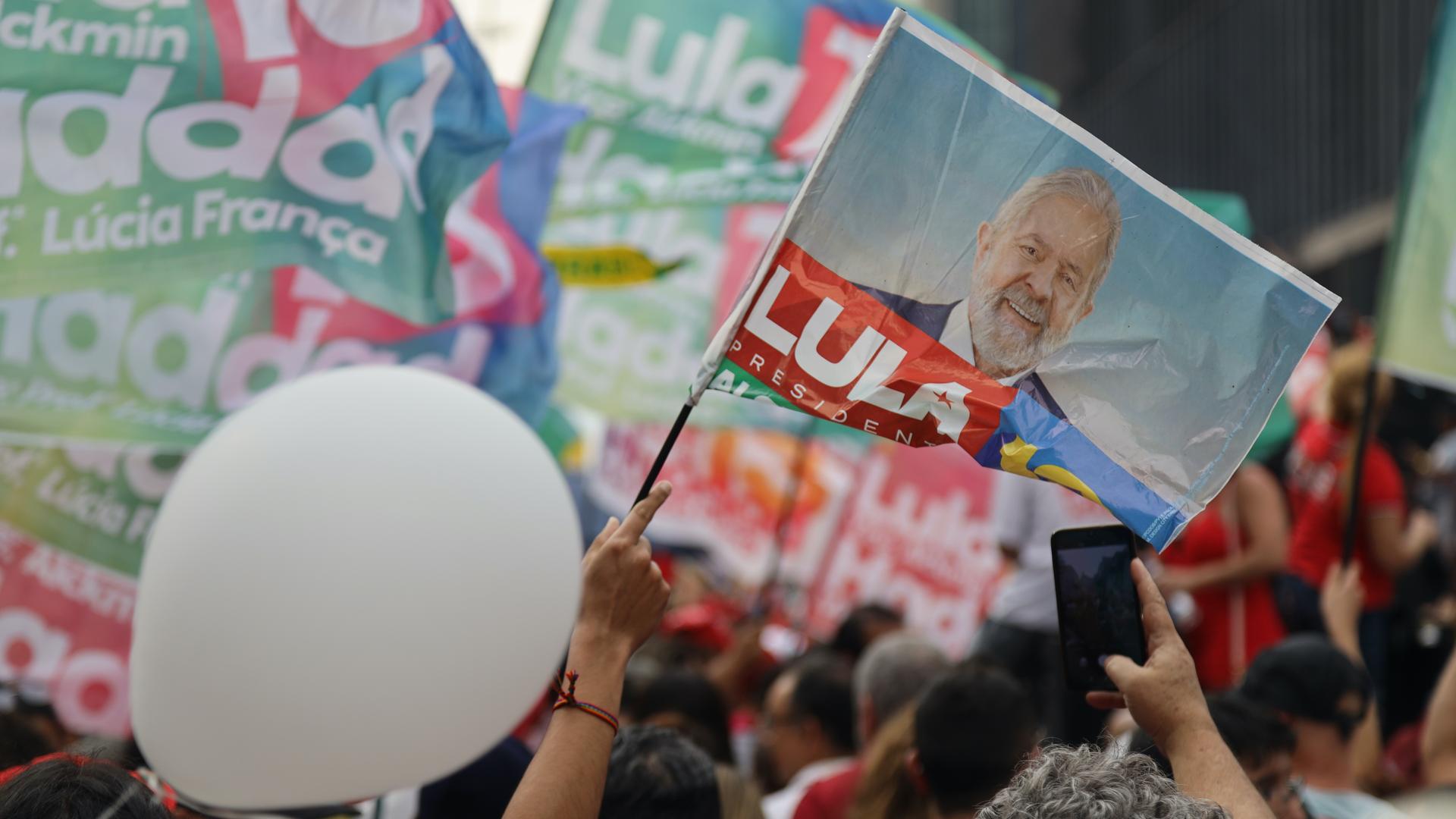Luiz Inácio Lula da Silva (“Lula”) beat out incumbent Jair Bolsonaro — by less than 2 percentage points — in the final round of Brazil’s presidential election on Sunday.
Lula pledged to unite a very divided electorate, while Bolsonaro delayed in responding to the victory.
In the hours leading up to Lula’s victory, his supporters crowded into São Paulo’s Paulista Avenue.

“It’s an honor to be here,” said Maiuco Barbosa Soares, alongside his children. “We want democracy. We want respect. Our current president doesn’t value the poor and the workers. That’s who I am. The people want change.”
Soares is from Bahia — in northeastern Brazil. And it’s people like him that put Lula over the top on Sunday in one of the most-contentious races in the country’s history. The northeast voted 70% in favor of Lula.
Many here share a common story: They came to Brazil’s financial capital in search of work — the same journey that brought Lula’s family here from the state of Pernambuco 70 years ago.
The northeast is the poorest region of Brazil. In his acceptance speech, Lula promised that his No. 1 commitment would, once again, be fighting poverty and hunger.
“We’re going to bring back the social inclusion programs that lifted 36 million Brazilians out of extreme poverty,” Lula said. “Brazil can no longer live with this immense bottomless pit, this immense inequality.”
The election itself went off without a hitch. But videos shared widely over social media showed federal police stopping traffic and boarding buses. The police carried out over 500 operations along roads and highways across the country, reportedly to stop criminal actions. Many feared it was an attempt to stop people from voting, particularly in northeastern Brazil.

At one point, the hashtag, “Let Northeast Vote” even went viral on Twitter. But if it was an attempt to stop voters, it didn’t work. Voter turnout was higher than in the first round.
But the deep divisions in the country have only hardened.
Carolina Massad, speaking from a polling station in an upscale São Paulo neighborhood, said she wanted to cry when she voted.
“I felt like whichever candidate I voted for would be harmful to me. I was sad to vote. Either one that I [would choose] wasn’t right,” she said.
Retiree Issac Nahon said the vote was simply a question of good versus evil.
“If Lula wins, they will end our property rights, end our freedoms, end our jobs,” Nahon said.
But Lula has promised to unite the country. In a speech on Sunday night, he said he would stop deforestation, protect the Amazon and repair the rifts between the executive branch, the Supreme Court and Congress. He said he would govern for all Brazilians, not just one party. But it will be a challenge.
As of Monday afternoon, Bolsonaro has yet to accept his defeat.
However, some of his top allies, including the head of the Lower House Arthur Lira, have made statements recognizing the results.

“Brazil showed, once again, the vitality of its democracy,” he said. “The will of the majority should never be contested.”
But around the country, some Bolsonaro supporters took to the streets to reject the incumbent president’s loss.
In this video, truckers block a major highway and protesters waved Brazilian flags.
A man off-camera says, “Today is Oct. 30. The Brazilian people know we have suffered a serious coup, and we are not going to accept it.”
As of Monday morning, truckers had blocked highways in at least five states. They said they would only leave if the military intervened.
Although the country’s future is uncertain, a number of Lula supporters on Paulista Avenue agreed that a huge weight they’d been carrying for more than four years has finally been lifted.
